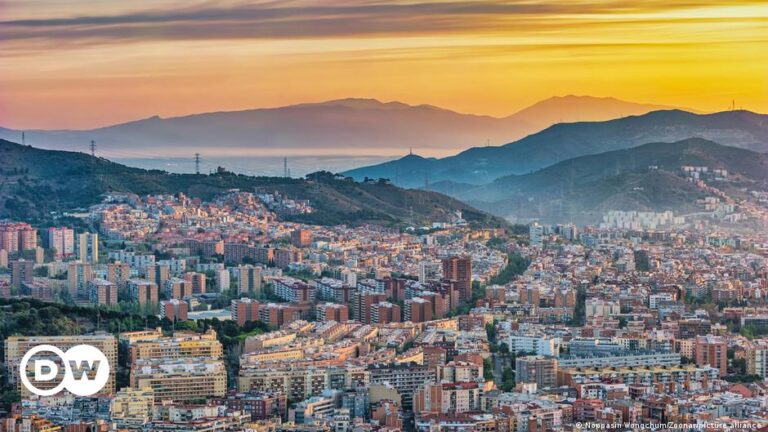Beaches, sunshine and a festive atmosphere are probably some of the first things tourists expect to see when they arrive in Barcelona. But in recent weeks, the city’s welcome has changed a bit. As tourists land in the city, they’re greeted at the airport with a different kind of message.
“Drought warning. Please conserve water during your stay.”
Catalonia has been in a state of crisis for three years and is suffering from the worst drought in 200 years, and although rains in recent weeks have eased the situation, the region remains wary of what the future may bring.
Climate change is expected to result in less rain in the Mediterranean region, and many hotels are already thinking about how to cope with the situation.
One towel please
In this respect, the outlook is brighter for those who have already done their homework. One such place is St. Christopher’s Inn, a hostel just a few meters from Plaza Catalunya. Since its construction, the establishment, which welcomes thousands of travelers from all over the world every year, has implemented a recycling system that reuses water from showers and sinks for cleaning and flushing the toilets.
Additionally, to reduce water consumption by guests, they have started charging 1 euro ($1.07) for each towel change and replaced traditional showerheads with push-button models that have timers. These are effective solutions, but they are not easy to implement.
“The biggest challenge is the cost. Our building has 450 beds and 35 showers. Justifying the investment was a bit complicated at the beginning and we had to convince the company to approve the budget,” explains Alex De Luca, marketing manager at St. Christopher’s Inn.
Apart from this facility, other properties in Barcelona are also taking steps to combat the drought and become more sustainable: Hilton Diagonal Mar has opted to use seawater in its pool, extending the water’s lifespan, while Majestic Hotel & Spa Barcelona has improved its shower system to mix more air into the water, reducing water consumption from 40 liters (10.5 gallons) per minute to just 9 liters.
Is Barcelona as beautiful as it looks on Instagram?
This browser does not support the video element.
Use the hotel shower
These efforts by businesses may also need to be accompanied by a change in visitors’ attitudes, with many people unaware of what is going on until they come across signs and see the various measures in place.
“We are gradually re-educating them, and the response has been more positive than we expected, but sometimes guests complain that the water in their showers doesn’t last long,” De Luca said. While these measures have been proven to save water, it’s unclear exactly how much water visitors are using.
Hoteliers in Barcelona have reduced their daily water consumption by 40% over the past seven years, according to a study published by the Barcelona Hotel Guild in May 2023. The study also revealed that hotels account for 9% of the total water consumed in the city.
Furthermore, the average water consumption per tourist is 163.5 litres per day, which is only slightly higher than that of Barcelona residents when consumption outside the home is taken into account.
Changing attitudes in Catalonia
The University of Barcelona’s Water Institute doesn’t have any data on this, but it estimates that tourists use about twice as much water per day as the general public, a significant figure that is unlikely to have any impact.
José F. García, director of the university’s chemistry institute, doesn’t see this model changing anytime soon: “Tourism is a very important part of Barcelona’s economy, and that has an impact on the local population,” he explains.
In fact, more than 85 million tourists are expected to visit Spain in 2023, contributing 12% of the country’s GDP.
Still, Garcia believes that in the medium term, as the need grows and grows, change could happen. But this won’t happen until local attitudes change too: “The moment we all realise that water is a limited resource and we can’t use it as much as we want, we’ll all use less water. This will also lead to a change in the economic model.”
Properties like St. Christopher’s Inn are already making the effort: “When it comes to conserving water, every action matters. From the business decisions we make to the actions we encourage our guests to take, we all have a role to play,” says Alex De Luca.
Editor: Tim Lukes

